
Integrate Tech with Style in Your Modern Living Room
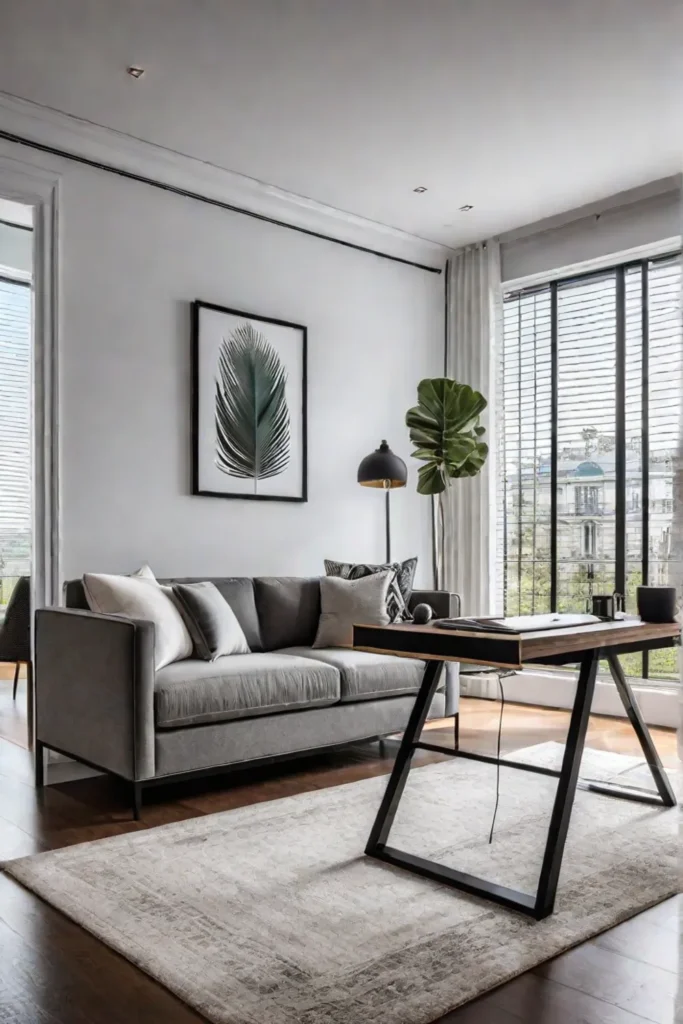
Imagine stepping into a living room that not only exudes warmth and sophistication but also offers the convenience of cutting-edge smart home features. A room where the boundaries between form and function blur, where aesthetics and innovation coexist in perfect harmony. This is the new frontier of modern living, where smart technology and stylish furniture merge to redefine the essence of comfort and convenience.
The Rise of the Connected Living Room
The living room has emerged as a prime canvas for integrating smart home technology in the ever-evolving home decor landscape. As our lives become increasingly intertwined with digital devices and automated systems, the demand for living spaces that seamlessly blend these advancements with timeless design has skyrocketed.
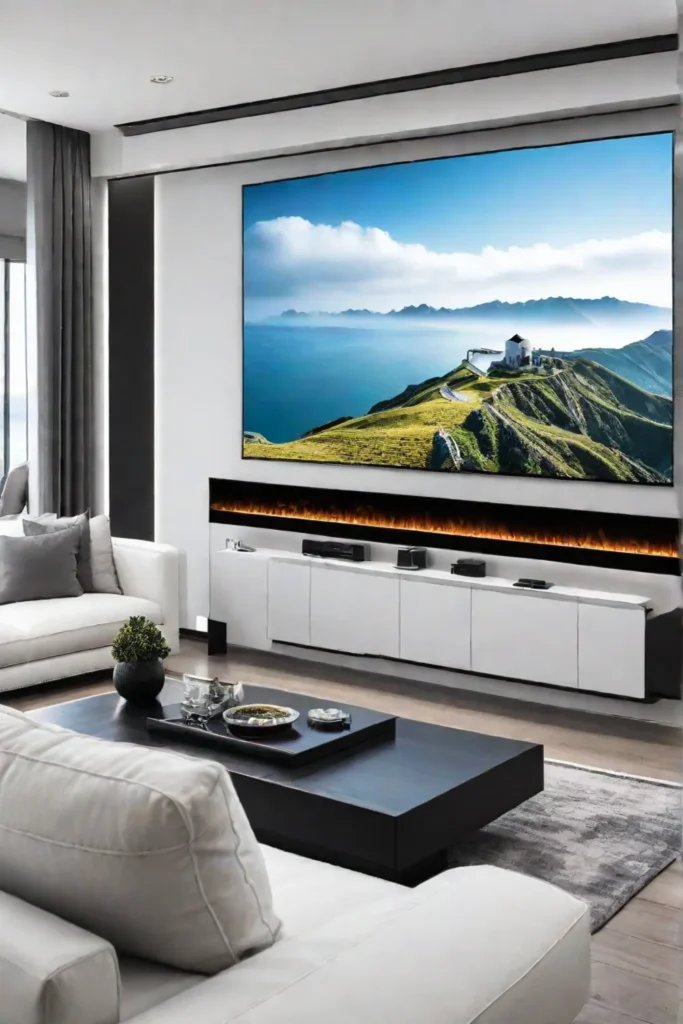
According to a recent survey, 69% of homeowners now consider smart home features essential when purchasing new furniture or renovating their living rooms. This statistic underscores the profound shift in consumer preferences as we seek living spaces that reflect our styles and cater to our modern, tech-savvy lifestyles.
The global smart home market is projected to reach $174 billion by 2025, with the living room being a key focal point. Leading furniture manufacturers and designers have taken notice, adapting their products to meet this growing demand by seamlessly incorporating smart home features into their creations.
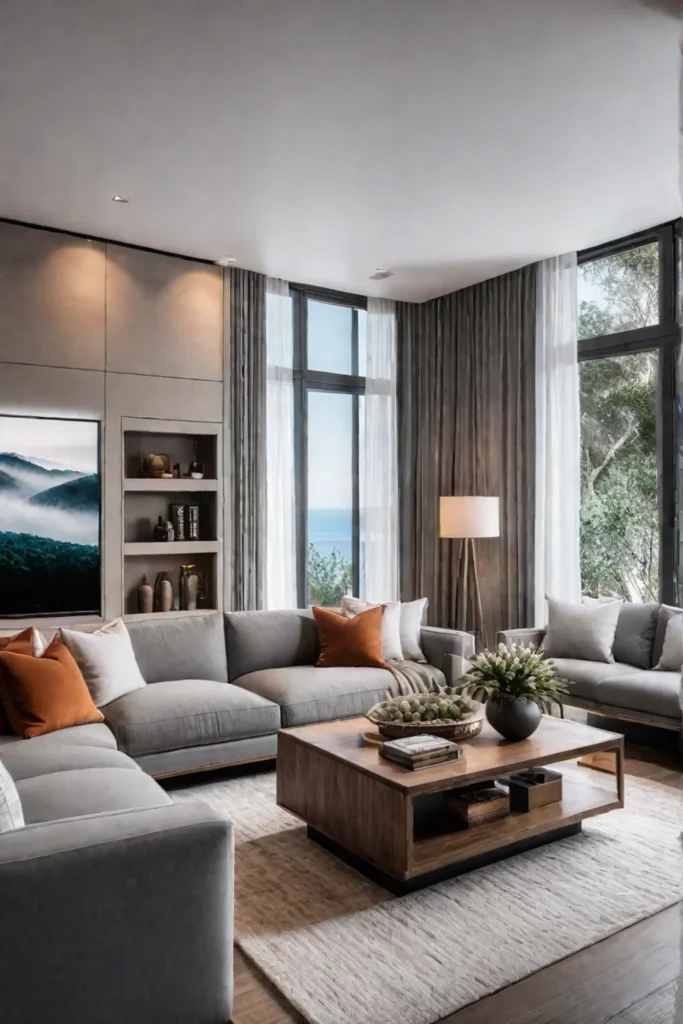
The possibilities for blending technology and design are endless, from hidden cable management systems and wireless charging stations to integrated voice control and energy-efficient lighting. However, successfully integrating smart features into living room furniture requires careful planning and consideration of user needs, ensuring that functionality and aesthetics coexist perfectly.
Designing for Both Style and Smarts
As the demand for smart living rooms continues to rise, the challenge lies in striking the perfect balance between aesthetics and functionality. Homeowners no longer have to sacrifice visual appeal for technological convenience; instead, they can embrace both worlds through thoughtful design and strategic integration.
Concealing technology has become a key strategy for maintaining a clean, uncluttered aesthetic in the living room. Furniture designers are exploring ingenious ways to conceal smart home features, such as hidden speakers seamlessly integrated into sofas or retractable TV mounts that disappear into the wall when not used. By minimizing visual clutter, these designs allow the living room’s natural beauty and personal touches to take center stage.
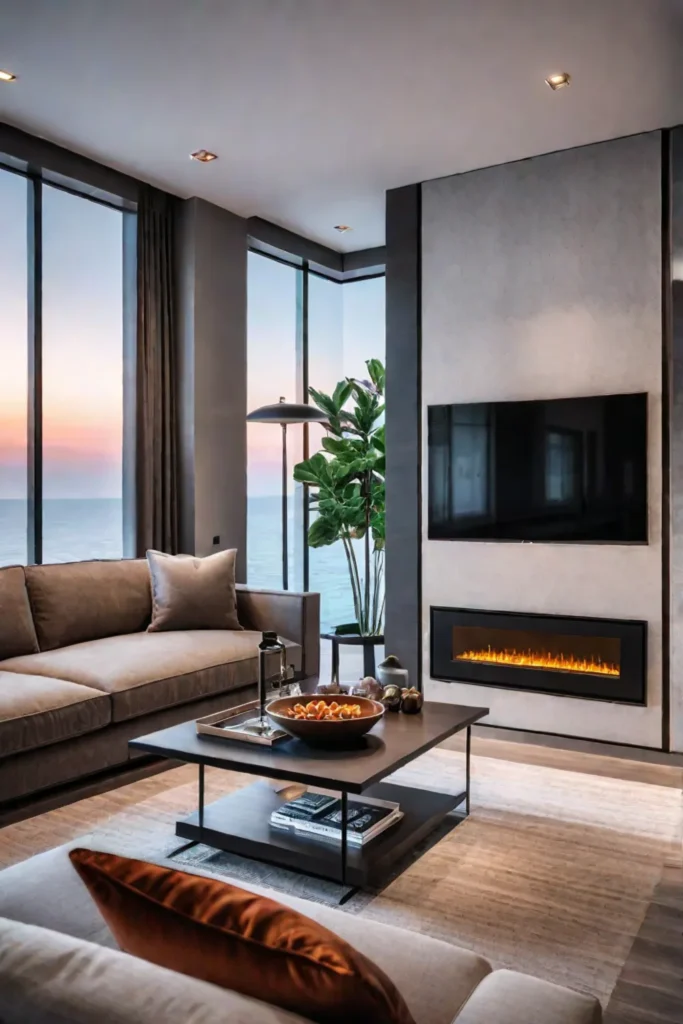
Moreover, user experience and accessibility are paramount when implementing smart home technology. Intuitive control systems, such as voice commands or touchscreens, ensure that even the most technologically challenged individuals can effortlessly navigate the smart features within their living rooms. Careful consideration of user needs and preferences is essential to creating a seamless and enjoyable living experience.
Multifunctional Living Room Furniture: Where Style Meets Versatility
In the ever-changing landscape of modern living, versatility, and adaptability have become watchwords for homeowners seeking furniture that can keep pace with their dynamic lifestyles. Enter the multifunctional living room furniture world, where smart home integration meets timeless design and unparalleled functionality.
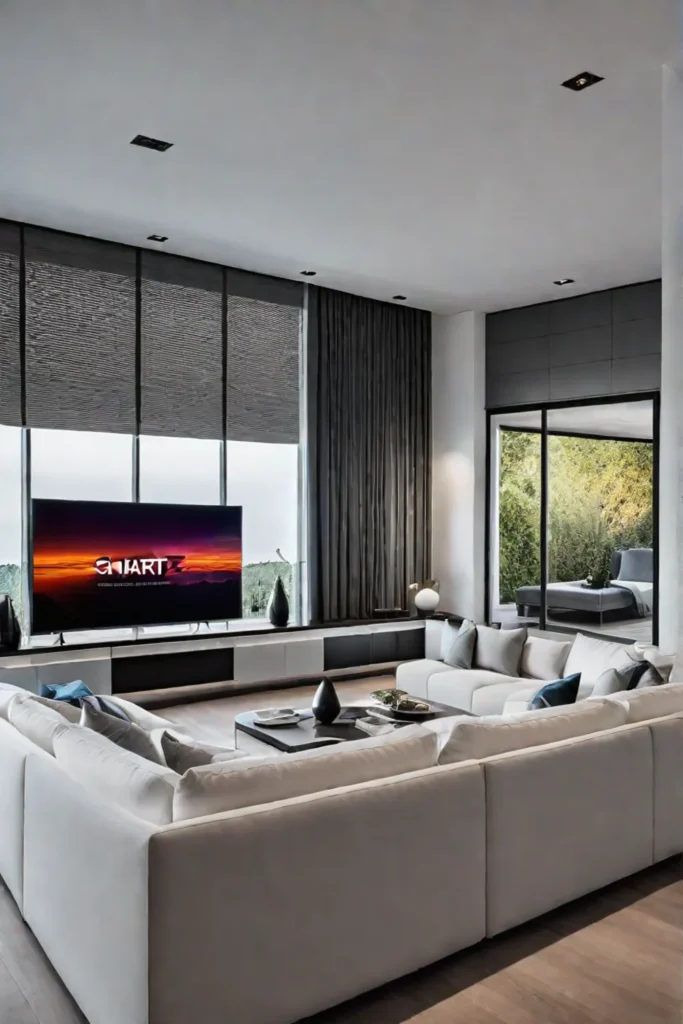
Imagine a sofa cradling you in luxurious comfort and offering integrated charging stations for your devices, wireless connectivity, and even voice control capabilities. Or envision a coffee table that doubles as a discreet workstation, with hidden compartments for cable management and built-in charging ports. These innovative pieces blur the lines between traditional furniture and cutting-edge technology, creating spaces that truly cater to our modern needs.
A recent study revealed that 75% of homeowners are willing to pay a premium for living room furniture that offers smart home integration and multifunctional capabilities. This statistic underscores the growing demand for pieces that seamlessly blend style, comfort, and cutting-edge technology, creating living spaces that are as adaptable as they are aesthetically pleasing.
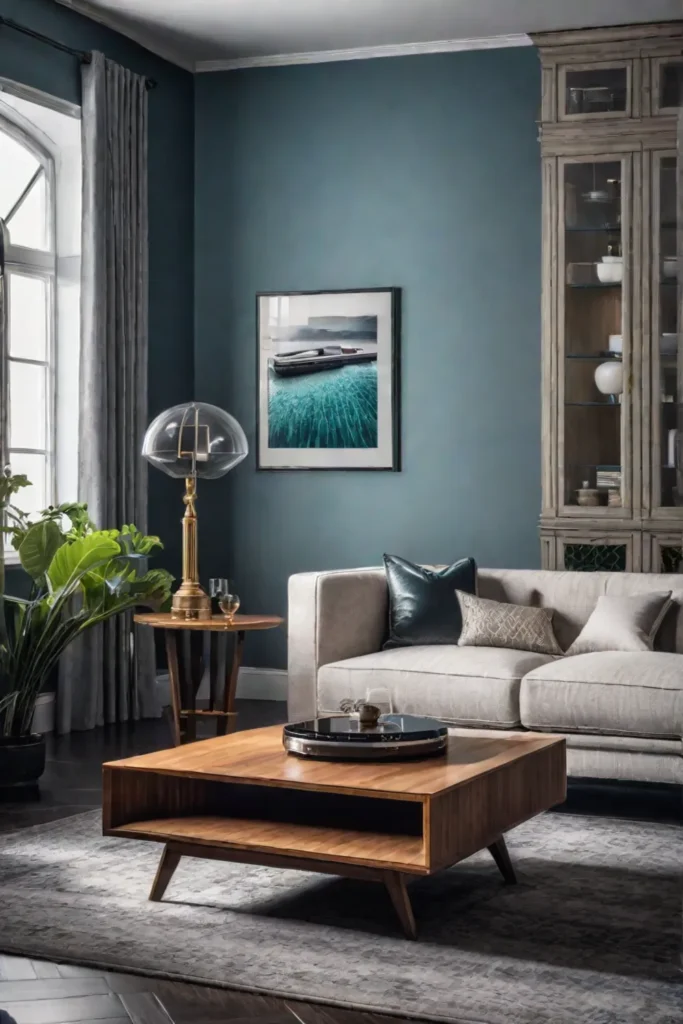
As the global market for multifunctional furniture continues to grow at a projected CAGR of 2% from 2021 to 2028, furniture manufacturers and designers are rising to the challenge. They are leveraging smart home technology to create more versatile and adaptable living room furniture, enhancing these spaces’ user experience and overall functionality.
Concealing and Controlling: The Art of Seamless Integration
In the quest to create living rooms that harmoniously blend style and technology, concealing and controlling smart home features has become a critical consideration. While the convenience of these advancements is undeniable, their visual impact can often detract from a space’s overall aesthetic appeal.
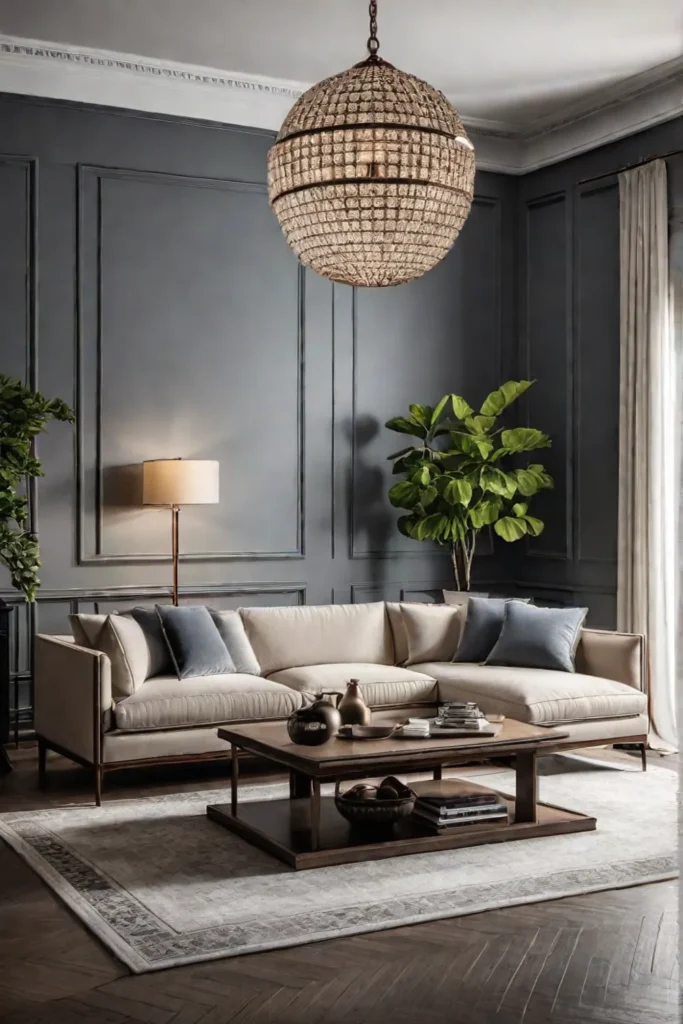
Unsightly cables and exposed wires are a common deterrent for homeowners seeking to incorporate smart home technology into their living rooms. However, innovative solutions such as hidden cable management systems, recessed power outlets, and integrated control panels are revolutionizing how we approach this challenge.
Imagine a living room where the only visible evidence of smart technology is a sleek, discreet control panel that seamlessly blends into the decor. With a simple touch or voice command, you can effortlessly adjust the lighting, temperature, and entertainment systems, all while maintaining the room’s pristine visual appeal.
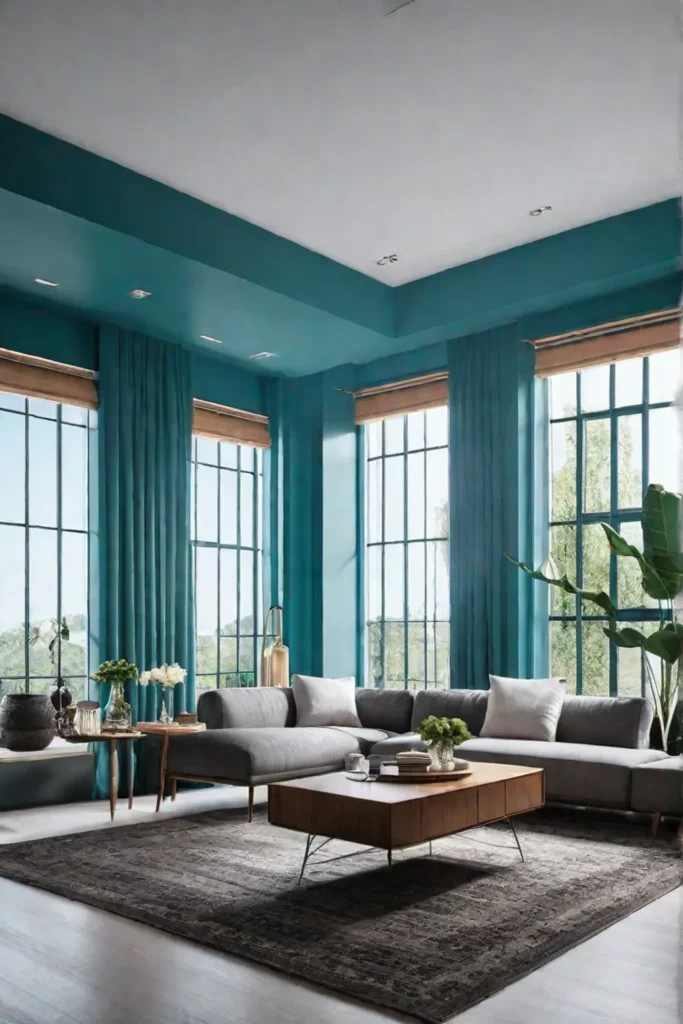
The global market for smart home control systems is expected to reach a staggering $53 billion by 2026, driven by the demand for centralized and user-friendly smart home management. As furniture designers and smart home technology providers collaborate to create more integrated and intuitive control systems, the living room is poised to become a true sanctuary of seamless integration.
Sustainable Sophistication: Eco-Friendly Living Room Furniture for the Smart Home Era
As our collective consciousness continues to evolve towards a more sustainable future, the demand for eco-friendly and energy-efficient living room furniture has become a driving force in the smart home era. Homeowners are no longer content with mere aesthetic appeal; they seek pieces that elevate their living spaces and align with their environmental values.
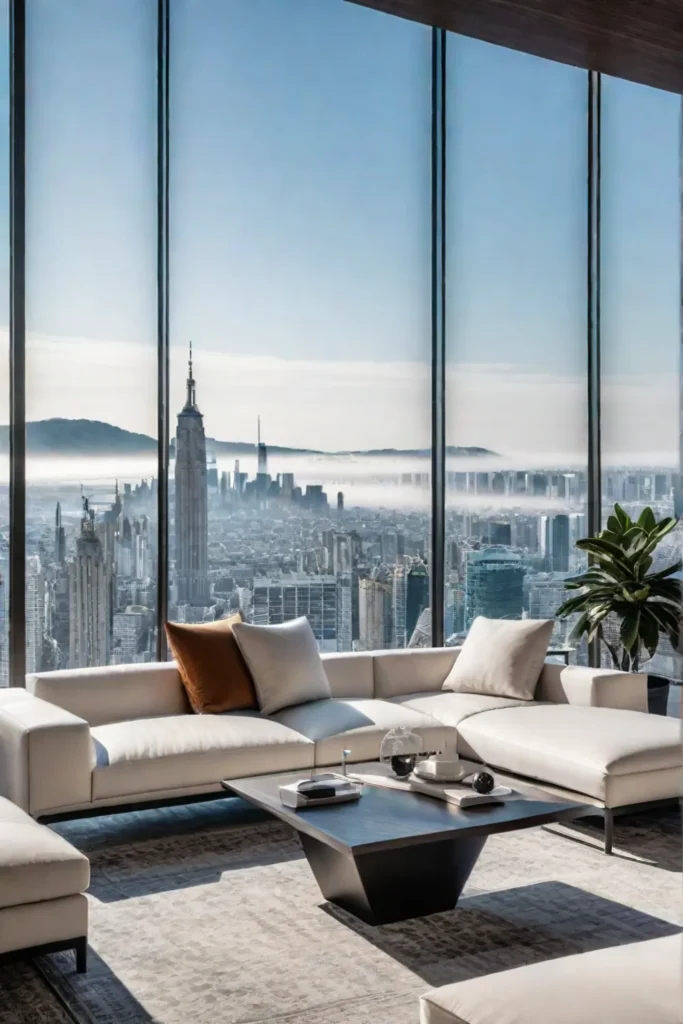
According to a recent survey, 72% of homeowners consider sustainability a key factor when purchasing new living room furniture. This statistic highlights the growing awareness and desire for eco-conscious choices beyond Integg smart home features.
The global market for eco-friendly furniture is projected to grow at a CAGR of 2% from 2021 to 2028, reflecting the increasing demand for sustainable solutions that harmonize with our modern, tech-savvy lifestyles.
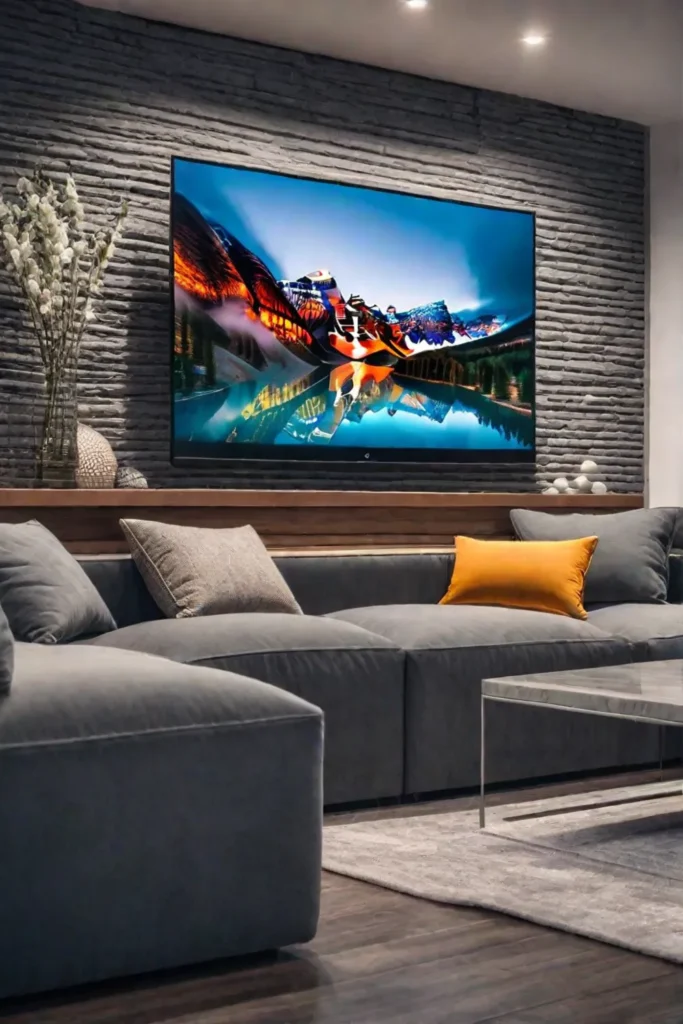
Furniture manufacturers and designers are rising to this challenge, leveraging smart home technology to create more sustainable and energy-efficient living room furniture. From motion-activated lighting systems that reduce energy consumption to smart thermostats that optimize heating and cooling based on occupancy, these innovative features enhance convenience and contribute to a greener, more environmentally responsible living experience.
Personalized Perfection: Customizing Your Smart Living Room
In the ever-evolving world of smart home technology, personalization has emerged as a driving force, allowing homeowners to create living spaces that reflect their unique personalities and preferences. As the heart of the home, the living room has become a canvas for this customization, where smart features and personal touches converge to create a truly tailored experience.
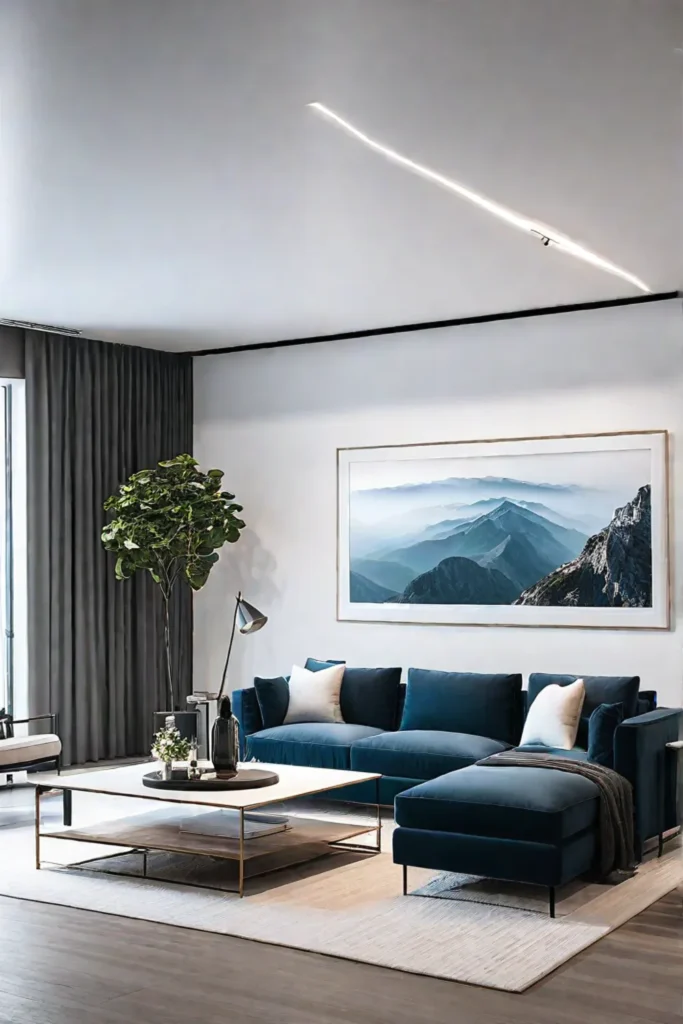
A recent study revealed that a staggering 82% of homeowners consider the ability to personalize their living room furniture a key factor when making purchasing decisions. This statistic underscores the growing desire for living spaces that not only exude style but also cater to individual needs and preferences.
Imagine a living room where the lighting, sound settings, and even storage solutions are tailored to your specific tastes and lifestyle—a space where the furniture adapts to you rather than the other way around. This is the essence of personalized living, made possible by the seamless integration of smart home technology into living room furniture.
As the global market for customized furniture grows at a projected CAGR of 3% from 2021 to 2028, furniture manufacturers and smart home technology providers are collaborating to offer more customizable and personalized living room solutions. The possibilities for personalization are endless, from adjustable lighting that can be fine-tuned to your preferences to user-specific storage solutions that cater to your unique organizational needs.
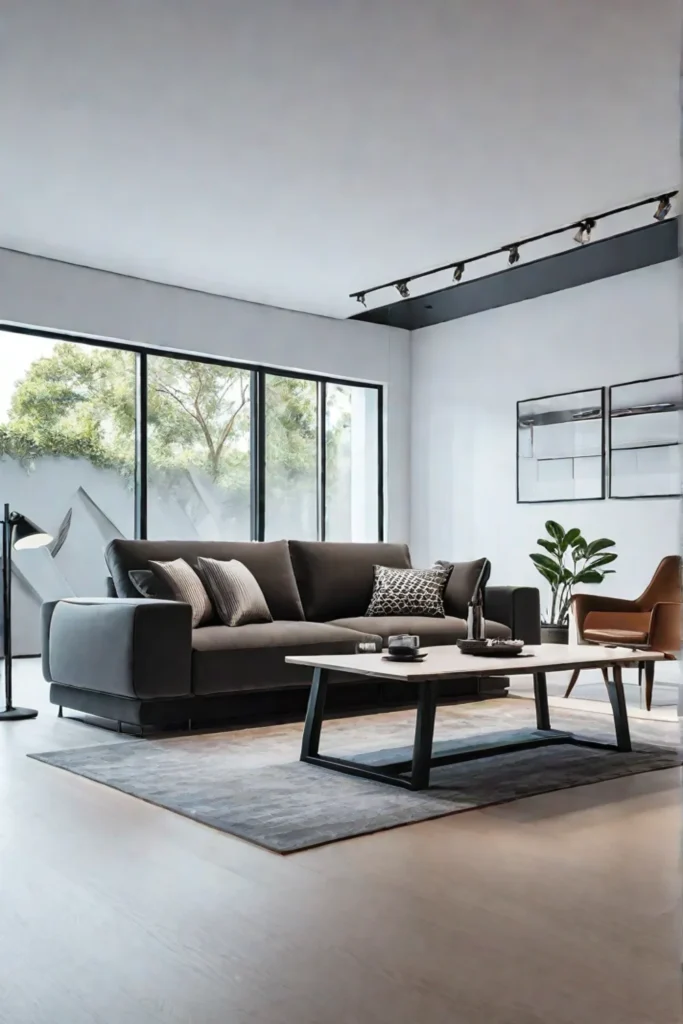
However, successful personalization of smart living room furniture requires a delicate balance between flexibility and user-friendly design. Furniture designers and technology providers must work in tandem to create solutions that are intuitive, easy to customize, and seamlessly integrated into the living room’s overall aesthetic.
The Future of Smart Living: Where Innovation Meets Inspiration
The possibilities are exciting and boundless as we peer into the future of smart living room furniture. Integrating cutting-edge technologies such as artificial intelligence and machine learning promises to elevate the living room experience to new heights, offering unparalleled personalization, convenience, and efficiency.
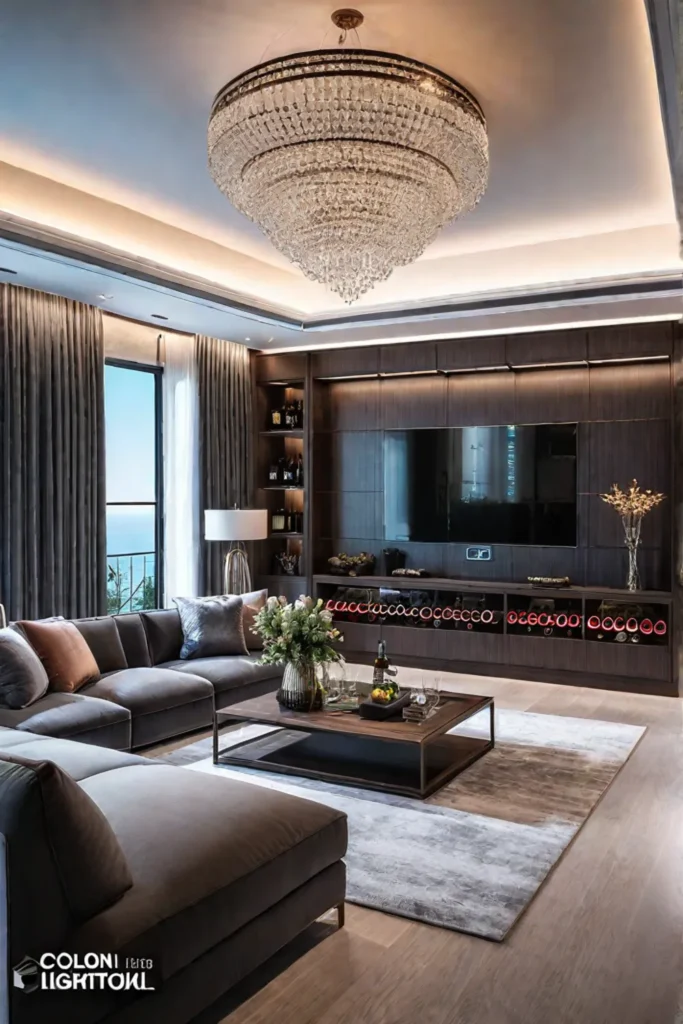
Experts predict the global smart home market will reach a staggering $141 billion by 2023, with the living room remaining a key focal point. This projected growth is fueled by the anticipated advancements in smart home technology and its impact on living room furniture design.
Imagine a living room where the furniture learns and adapts to your preferences, automatically adjusting lighting, temperature, and even ergonomic settings based on your unique patterns and behaviors. Or envision a space where predictive maintenance features keep your smart furniture in optimal condition, alerting you to potential issues before they arise and extending the lifespan of your investment.
Integrating artificial intelligence and machine learning into smart home technology is expected to grow at a remarkable CAGR of 5% from 2021 to 2028, paving the way for a future where living rooms become truly intelligent and responsive environments.
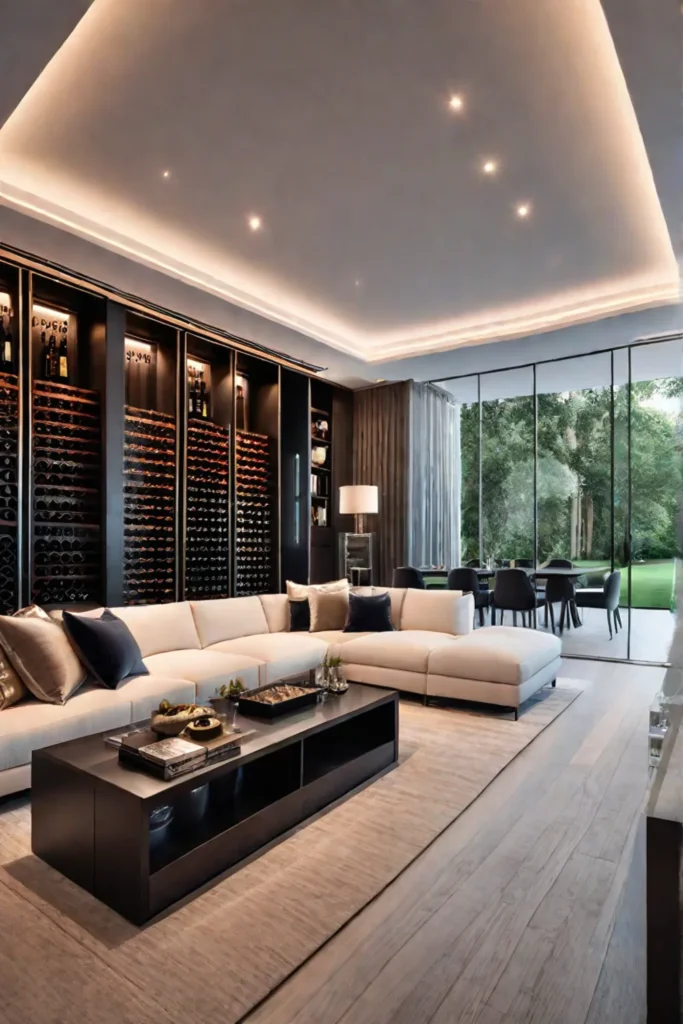
As we stand on the precipice of this technological revolution, it is clear that the future of smart living room furniture lies in the seamless fusion of innovation and inspiration. Furniture designers and technology providers must work together to create solutions that not only push the boundaries of what is possible but also resonate with the human desire for beauty, comfort, and personal expression.
Conclusion
In the ever-evolving landscape of modern living, integrating smart home technology with stylish living room furniture has become a hallmark of contemporary design. No longer confined to science fiction, these harmonious spaces are a reality, offering homeowners the perfect blend of aesthetic appeal, cutting-edge functionality, and personalized comfort.
From multifunctional furniture that adapts to our dynamic lifestyles to sustainable solutions that align with our environmental values, the possibilities for creating smart living rooms that truly resonate with our modern sensibilities are endless. As we look towards the future, integrating artificial intelligence and machine learning promises to elevate the living room experience further, transforming these spaces into truly intelligent and responsive environments.
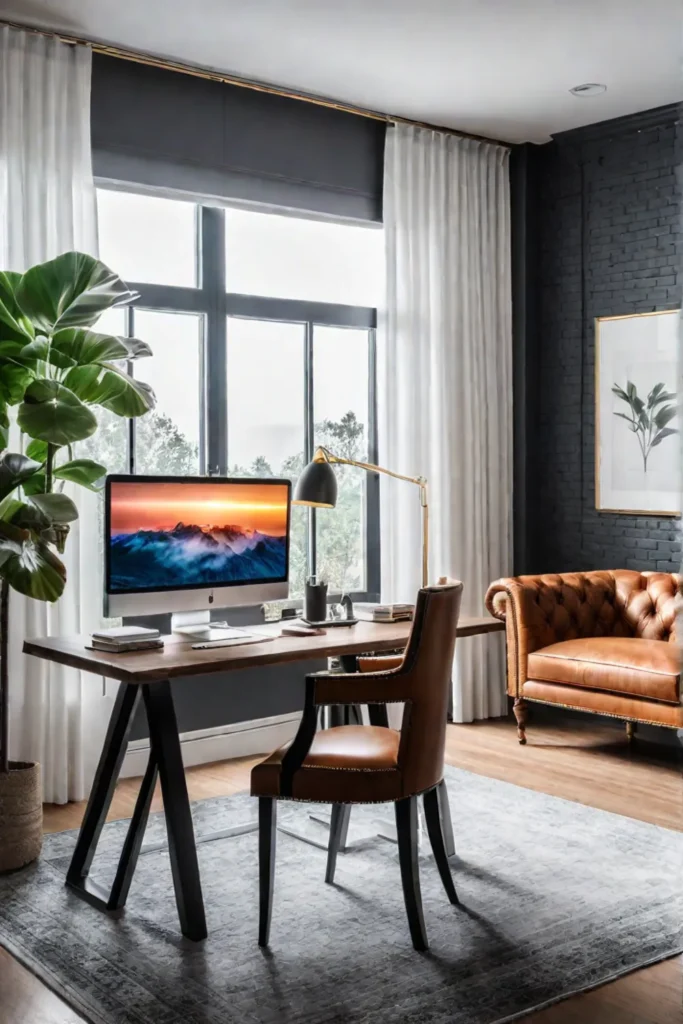
However, amidst these technological advancements, it is essential to remember that the living room remains a sanctuary—a place where we gather with loved ones, find solace, and express our unique identities. The careful balance between innovation and inspiration, between functionality and beauty, will ultimately define the success of smart living room furniture in the years to come.
As we embrace this exciting new frontier, let us do so with a sense of wonder and appreciation for the art of design and the power of technology to enhance our lives. In the end, the seamless fusion of these elements will create living spaces that reflect our modern sensibilities and nourish our souls, allowing us to live in harmony with the ever-evolving world around us.
You may also like
Archives
Calendar
| M | T | W | T | F | S | S |
|---|---|---|---|---|---|---|
| 1 | 2 | 3 | 4 | 5 | 6 | |
| 7 | 8 | 9 | 10 | 11 | 12 | 13 |
| 14 | 15 | 16 | 17 | 18 | 19 | 20 |
| 21 | 22 | 23 | 24 | 25 | 26 | 27 |
| 28 | 29 | 30 | 31 | |||

Leave a Reply